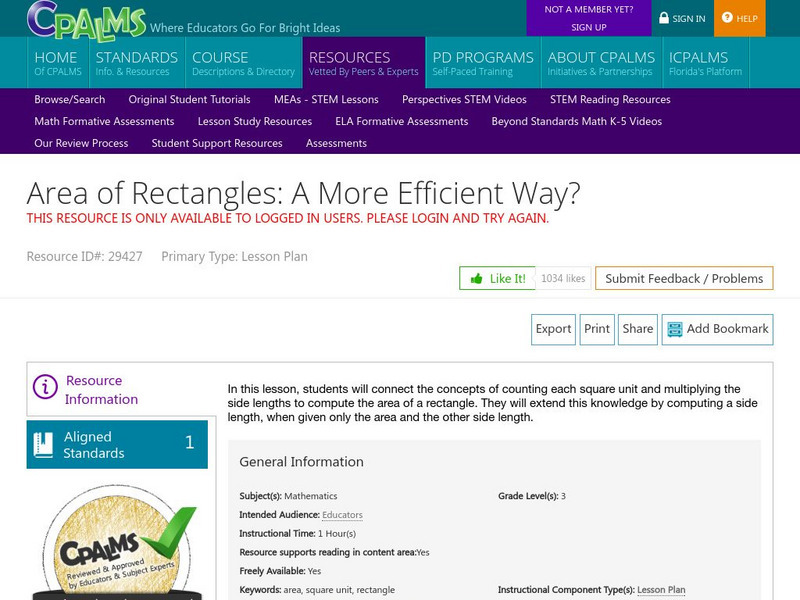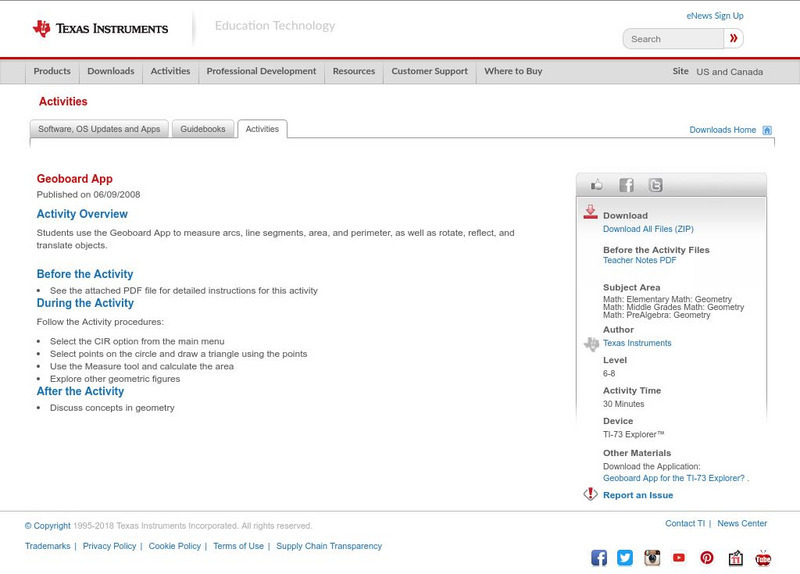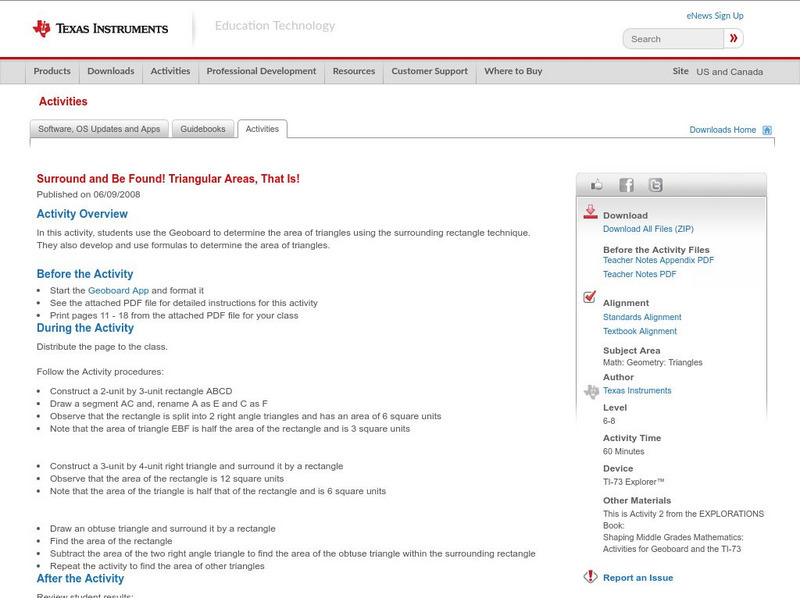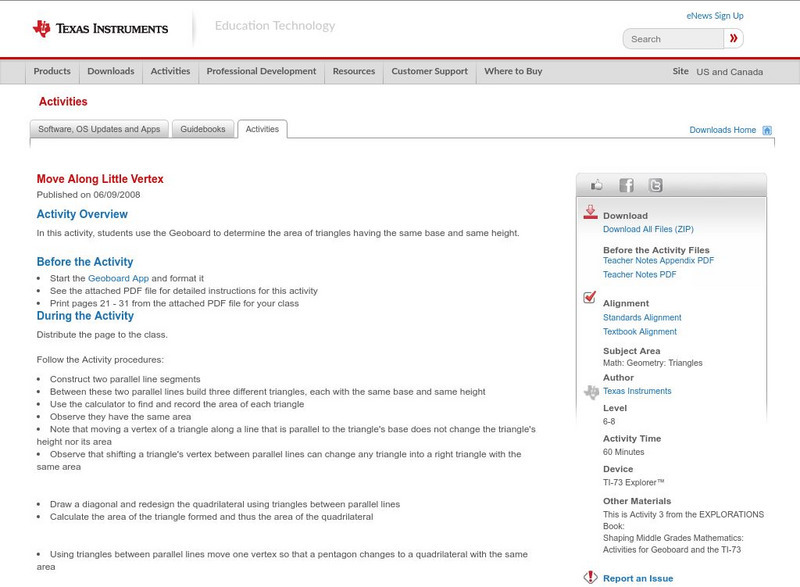Curated OER
Learning about Shapes with Tangrams and the Net
Learners use tangrams, student literature, and Websites to explore shapes.
Curated OER
Fractions of a Set
Third graders use fractions to describe part of a set. For this fractions lesson, 3rd graders are introduced to fractions through a book and use pattern blocks to describe a fraction as a part of a set. This lesson includes a scripted...
Curated OER
Design an Apartment
Young scholars are given the task of designing an apartment. In groups, they practice estimating the area and perimeter of different shapes. After designing their space, they apply the same formulas to solving real-world story problems.
Curated OER
Perimeters, Patterns, and Conjectures
Students discover patterns and write conjectures relating to perimeters and polygons. Working in cooperative learning groups, they use manipulatives and graphic organizers to solve problems then answer a series of questions in which they...
NY Learns
Investigation - Looking at Polygons
Middle schoolers construct polygons by plotting points on a coordinate plane. Pupils connect the points and identify which polygons they have drawn. They will need graph paper to carry out the assigned activities. A vocabulary list,...
Curated OER
What Is Your Point?
Sixth graders identify the x and y axes in a coordinate plane and identifies the coordinates of a given point in the first quadrant. They plot specific points in the first quadrant of the Cartesian coordinate system.
CPALMS
Cpalms: Area of Rectangles: A More Efficient Way?
[Free Registration/Login Required] In this lesson, students will connect the concepts of counting each square unit and multiplying the side lengths to compute the area of a rectangle. They will extend this knowledge by computing a side...
Texas Instruments
Texas Instruments: Geoboard and Area
In this activity, students find areas of figures which are displayed on a grid. They also use the Geoboard application to find areas of figures they draw.
Texas Instruments
Texas Instruments: Geoboard App
Students use the Geoboard App to measure arcs, line segments, area, and perimeter, as well as rotate, reflect, and translate objects.
Texas Instruments
Texas Instruments: Pick and Choose! Using Pick's Theorem!
In this activity, students use the Geoboard to determine the area of any polygon using Pick's Theorem.
University of Waterloo (Canada)
University of Waterloo: How to Use the Geoboard
Four worksheets are linked which deal with area and perimeter of shapes constructed on the Geoboard. Additionally, a link is given to an online Geoboard so students may play with the model on their own.
Texas Instruments
Texas Instruments: Surround and Be Found! Triangular Areas, That Is!
In this activity, students use the Geoboard to determine the area of triangles using the surrounding rectangle technique. They also develop and use formulas to determine the area of triangles. [Requires Adobe Reader.]
Science and Mathematics Initiative for Learning Enhancement (SMILE)
Smile: Geometry and the Geoboard
This site is a lesson plan for using a geoboard in a sixth grade geometry class. The lesson serves as an introduction to the geoboard and its uses in geometry. Some topics the lesson covers include helping to visualize shapes and and...
ClassFlow
Class Flow: Geoboards
[Free Registration/Login Required] Geoboards bring challenge into the classroom as the student uses methods to measure length, area, and perimeters of polygons.
Texas Instruments
Texas Instruments: Move Along Little Vertex
In this activity, students use the Geoboard to determine the area of triangles having the same base and same height.
Texas Instruments
Texas Instruments: Slide Along
In this activity, students use the Geoboard to determine the areas of quadrilaterals between parallel lines. [Requires Adobe Reader.]
Texas Instruments
Texas Instruments: Cross Fencing Pastures
In this activity, students use the Geoboard to determine the areas of polygons by dissecting them into parts that are squares, rectangles, and triangles.
Texas Instruments
Texas Instruments: Get to the Point! Coordinate Geometry!
In this activity, students use the Geoboard to determine the area of any polygon using coordinates.

















